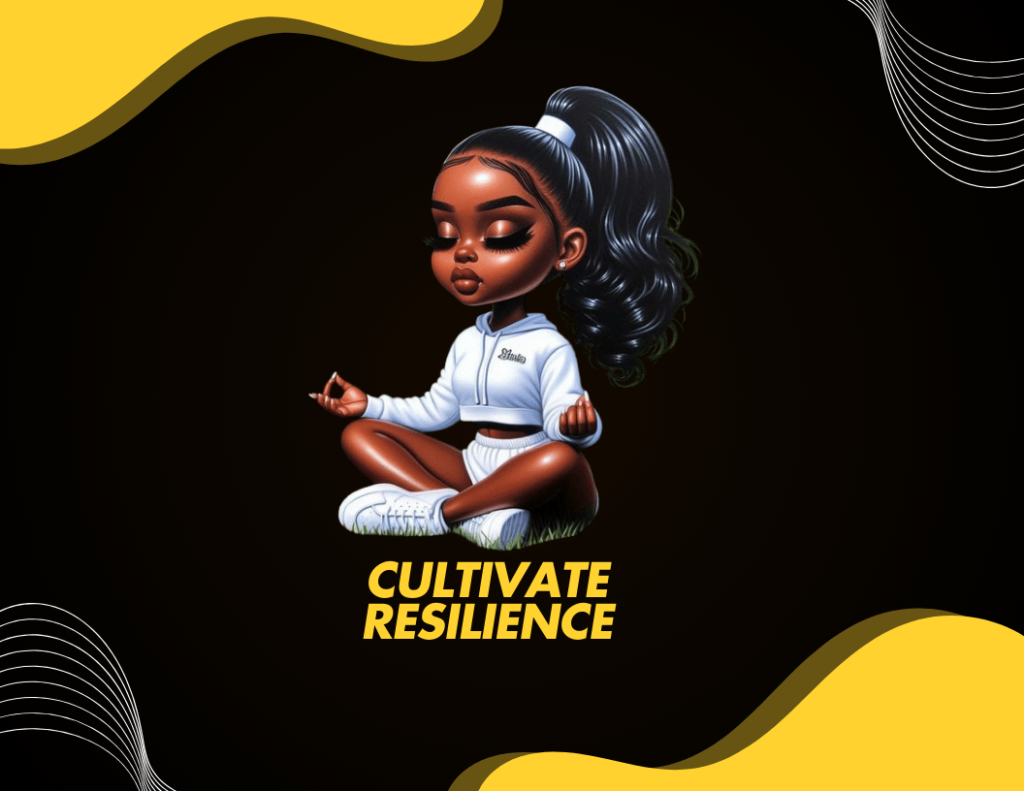Cultivate Resilience
Many people face unexpected challenges and setbacks in life, which can often feel overwhelming. Cultivating resilience equips you with the tools to bounce back and thrive despite adversity. By developing a strong mindset and embracing adaptability, you can navigate life’s trials more effectively. This blog post will guide you through practical steps and strategies to enhance your capacity for resilience, empowering you to turn difficulties into opportunities for growth and strength. With the right approach, you can transform challenges into stepping stones for personal and professional development.

Understanding Resilience
While many people face challenges in life, developing a strong sense of resilience can help you navigate through adversity and bounce back from difficulties. Resilience is more than just enduring hardships; it’s about thriving in the face of challenges and finding pathways to emotional and mental well-being.
Definition of Resilience
Below, resilience can be defined as your ability to adapt and recover from setbacks, stress, and adversity. It is the mental reservoir of strength that helps you cope with challenges while maintaining your emotional stability and overall well-being.
The Importance of Resilience in Daily Life
Definition, cultivating resilience enhances your ability to manage stress and navigate life’s uncertainties more effectively. When you have resilience, you are better equipped to handle personal challenges, maintain healthy relationships, and pursue your goals despite obstacles. This adaptability is necessary in fostering a balanced and fulfilling life.
Understanding the significance of resilience helps you recognize that life will always present challenges. With resilience, you develop a toolbox of strategies to face difficult circumstances, turning potential setbacks into opportunities for growth. You learn to view challenges through a constructive lens, making it easier to persevere and thrive.
The Science of Resilience
Resilience is not merely an innate trait; it involves a combination of behavioral patterns, thought processes, and emotional responses. By studying the psychology behind resilience, you can learn how to foster this quality in yourself, enhancing your capacity to overcome obstacles.
Science shows that resilience involves complex interactions between your brain’s neuroplasticity, emotional regulation, and social connections. The more you understand these mechanisms, the better equipped you are to strengthen your resilience skills. Engaging in practices like mindfulness, positive self-talk, and strengthening your social support network can significantly improve your resilience and overall psychological health.
The Building Blocks of Resilience
You can strengthen your ability to cope with life’s challenges by understanding the fundamental components of resilience. Each building block creates a solid foundation, allowing you to adapt, recover, and thrive in the face of adversity.
Emotional Awareness and Regulation
Any effective journey toward resilience begins with your ability to recognize and manage your emotions. Emotional awareness helps you identify feelings as they arise, while emotional regulation assists in responding to those feelings in a constructive way. This awareness enables you to navigate difficult circumstances with clarity and composure.
A Growth Mindset
Among the many traits that foster resilience is the concept of a growth mindset. Your perspective on challenges and failures greatly influences your ability to bounce back. When you see setbacks as opportunities for growth, you empower yourself to learn, adapt, and persist in the face of difficulty.
It is vital to cultivate this mindset by challenging negative thoughts and framing experiences as opportunities to improve. Focus on the skills you’re developing rather than the mistakes you make. By embracing a growth mindset, you enhance your capacity for adaptability and increase your resilience in unpredictable situations.
Strong Social Connections
Social connections play a significant role in your resilience. Building a network of supportive friends and family helps you navigate life’s ups and downs. These relationships provide emotional support and practical assistance, making it easier for you to face challenges together.
Awareness of the importance of strong social connections can lead to positive outcomes in your resilience journey. When you seek out supportive relationships, you create a solid network that can offer encouragement and understanding. By nurturing these connections, you reinforce your emotional well-being and enhance your ability to cope with adversity, ensuring you are not alone in times of struggle.

Strategies to Cultivate Resilience
After recognizing the importance of resilience in your life, it’s time to implement strategies that can help you build it effectively. These various techniques will empower you to handle setbacks more effectively and maintain a positive outlook even in tough situations.
Developing Problem-Solving Skills
Among the most effective ways to cultivate resilience is through enhancing your problem-solving skills. By breaking down challenges into manageable parts and approaching them methodically, you can better navigate life’s obstacles and gain a sense of control over your circumstances.
Practicing Self-Compassion
SelfCompassion plays a significant role in resilience. You must treat yourself with kindness during difficult times, acknowledging your feelings without harsh judgment. This empathetic approach encourages a positive mindset and allows you to recover more swiftly from setbacks.
Cultivate a supportive inner dialogue by recognizing that everyone faces failures and challenges. Accept your imperfections and give yourself permission to learn from mistakes, transforming potential negative self-talk into a source of motivation. By embracing self-compassion, you’ll foster emotional well-being and strengthen your resilience.
Setting Goals and Priorities
ProblemSolving becomes more effective when paired with clear goals and priorities. By establishing achievable objectives, you can maintain focus and direction, which is vital during challenging circumstances.
Practicing this skill involves not only defining what is important but also breaking larger tasks into smaller, actionable steps. This structured approach enables you to stay organized and feel a sense of accomplishment, even amid adversity. Prioritizing your well-being and responsibilities fosters resilience by allowing you to manage stress and respond more effectively to life’s inevitable challenges.

Resilience in Practice
All around us, stories of resilience demonstrate how individuals and communities face challenges head-on, adapting and thriving despite adversity. By examining these remarkable instances, you can gain insights into how to cultivate your own resilience.
Case Studies: Resilience in Real Life
The world is filled with inspiring case studies that illustrate the power of resilience:
- J.K. Rowling: Faced multiple rejections before ‘Harry Potter’ became a bestseller, leading to a net worth of over $1 billion.
- Oprah Winfrey: Overcame a tumultuous childhood and numerous setbacks to establish a media empire, becoming a symbol of hope for many.
- Nelson Mandela: Endured 27 years in prison, emerging as a leader who unified South Africa and became its first black president.
- Malala Yousafzai: Survived an assassination attempt and emerged as a global advocate for education, winning the Nobel Peace Prize at 17.
- Colonel Sanders: Faced countless rejections before founding KFC, which now has over 25,000 restaurants worldwide.
Lessons Learned from Failure
After experiencing failure, you often gain valuable insights into your strengths and weaknesses. While failure might feel devastating at the moment, you can transform this experience into a powerful learning opportunity.
In addition, by analyzing your failures, you can identify patterns in your behavior that may need adjustment. This self-reflection process can lead you to set new goals and strategies, building a robust framework for future success. Embracing failure as part of your journey rather than as a setback allows you to grow stronger and more prepared for upcoming challenges.
Techniques for Coping with Stress
For effective resilience, it’s crucial to develop techniques that help you manage stress. These strategies will enable you to navigate through life’s ups and downs with greater ease.
The Role of Environment in Resilience
Your environment has a profound impact on your ability to bounce back from adversity. It shapes how you perceive challenges and influences your coping mechanisms. Understanding how different aspects of your surroundings contribute to your resilience can empower you to create a more supportive and nurturing atmosphere for yourself and those around you.
How Family Background Influences Resilience
Family background plays a significant role in your resilience. Family dynamics, attachment styles, and emotional support can either bolster your ability to cope with stress or hinder your development. A nurturing environment fosters psychological strength, while a tumultuous upbringing may challenge your capacity to deal with life’s difficulties.
Community Support Systems
Community is important for building resilience, providing a network of support during tough times. Social connections, whether through friends, neighbors, or local organizations, can offer emotional encouragement, resources, and a sense of belonging. This supportive network often acts as a safety net, enabling you to navigate challenges more effectively.
Role of community support systems extends beyond just emotional backing. They offer practical assistance in times of need, helping you access resources for mental health, education, and basic needs. Engaging in community activities can enhance your social skills and provide opportunities to connect with like-minded individuals. When you have a dependable support system, you’re more likely to feel empowered, promoting resilience and growth in your life.
Workplace Resilience
The workplace also significantly influences your resilience. A positive work environment encourages collaboration and innovation, fostering a culture where challenges are met with teamwork and support. Conversely, a toxic work environment can create stress and impede your ability to cope effectively.
Influences at work can shape your emotional well-being and resilience. Organizations that prioritize mental health by offering employee assistance programs and fostering open communication create a climate where you feel valued and supported. By investing in your own professional development and seeking mentorship, you cultivate resilience that allows you to thrive in the face of challenges. Your workplace should be a source of strength, helping you build a foundation for personal and professional growth.
Teaching Resilience to Others
Many individuals seek to impart resilience to the next generation, whether through parenting, education, or mentorship. This chapter explores effective strategies for fostering resilience in various settings, empowering others to navigate challenges with grace and strength.
Techniques for Parenting Resilient Children
Between nurturing independence and providing support, you can cultivate resilience in your children. Encourage them to face challenges head-on, allowing them to experience both success and failure, while reinforcing a positive mindset. Provide opportunities for problem-solving and decision-making, which builds confidence and adaptability.
Fostering Resilience in Educational Settings
Educational environments play a vital role in developing resilient students. By creating supportive spaces, you can encourage risk-taking and perseverance during academic pursuits. Teachers should focus on teaching coping strategies and fostering a growth mindset to help students overcome obstacles.
Children thrive in classrooms where they feel valued and understood. Establishing a culture of collaboration and respect promotes resilience, as students learn to support one another in facing challenges. Encouraging goal-setting and celebrating small achievements can significantly enhance their sense of agency and motivation to persist.
Mentoring Programs for Building Resilience
Below are some key elements to consider when implementing mentoring programs aimed at building resilience. Effective mentors provide guidance and encouragement, fostering a sense of connection and belonging in their mentees.
Parenting and mentorship both emphasize the power of support networks. By pairing youth with mentors, you create opportunities for them to learn valuable life skills and resilience strategies. Mentors can share personal experiences of overcoming adversity and model positive coping mechanisms, reinforcing the idea that failure is an opportunity for growth. Such relationships can profoundly impact their ability to navigate life’s challenges with confidence and strength.
Summing up
Drawing together the various strategies for cultivating resilience, you equip yourself to better navigate life’s challenges. By embracing change, fostering positive relationships, and focusing on self-care, you enhance your ability to recover from setbacks. Developing a growth mindset allows you to view difficulties as opportunities for learning and improvement. As you practice these techniques, you will find that resilience becomes a powerful tool in your personal and professional life, enabling you to face adversity with confidence and strength.
FAQ
Q: What does it mean to cultivate resilience?
A: Cultivating resilience involves developing the ability to bounce back from challenges, setbacks, and stressful situations. It encompasses building mental, emotional, and physical strength to navigate life’s difficulties effectively while maintaining a positive outlook.
Q: Why is resilience important in everyday life?
A: Resilience plays a significant role in helping individuals cope with adversity. It allows people to manage stress more effectively, maintain emotional stability, and recover from life’s challenges. By fostering resilience, one can improve overall mental health and enhance their capacity for happiness and success.
Q: Can resilience be developed, or is it an inherited trait?
A: Resilience is primarily a skill that can be developed over time rather than an inherent trait. While some people may have a natural predisposition to resilience, various practices, coping strategies, and supportive environments can help anyone enhance their resilience strengths.
Q: What are some practical strategies for building resilience?
A: Practical strategies for building resilience include establishing supportive relationships, maintaining a positive mindset, focusing on personal values, setting realistic goals, and practicing self-care. Engaging in mindfulness and stress-reduction techniques can also be beneficial.
Q: How does self-care contribute to resilience?
A: Self-care is vital for building resilience as it helps individuals recharge and maintain their mental and emotional well-being. Engaging in activities that promote relaxation, physical health, and joy can equip individuals with the strength needed to face challenges and recover from adversity.
Q: Are there specific practices to improve emotional resilience?
A: Yes, practices such as journaling, therapy, and mindfulness meditation can enhance emotional resilience. Reflecting on experiences, expressing feelings in a safe environment, and staying present can help in managing emotions effectively and building greater emotional strength.
Q: How can I support someone else in cultivating resilience?
A: Supporting someone in cultivating resilience involves listening without judgment, encouraging open communication, promoting healthy coping mechanisms, and reinforcing their strengths. Being a consistent source of encouragement and providing practical support can significantly aid their resilience journey.



